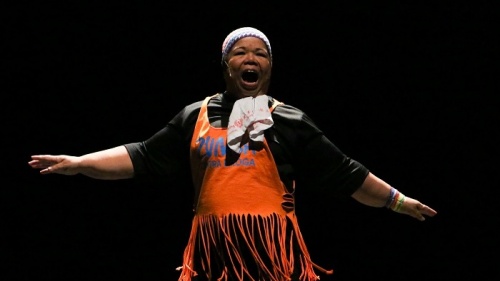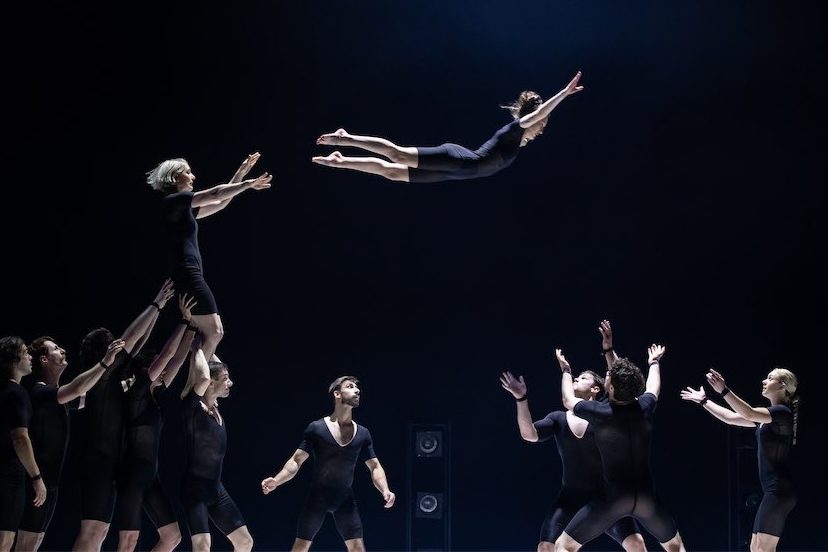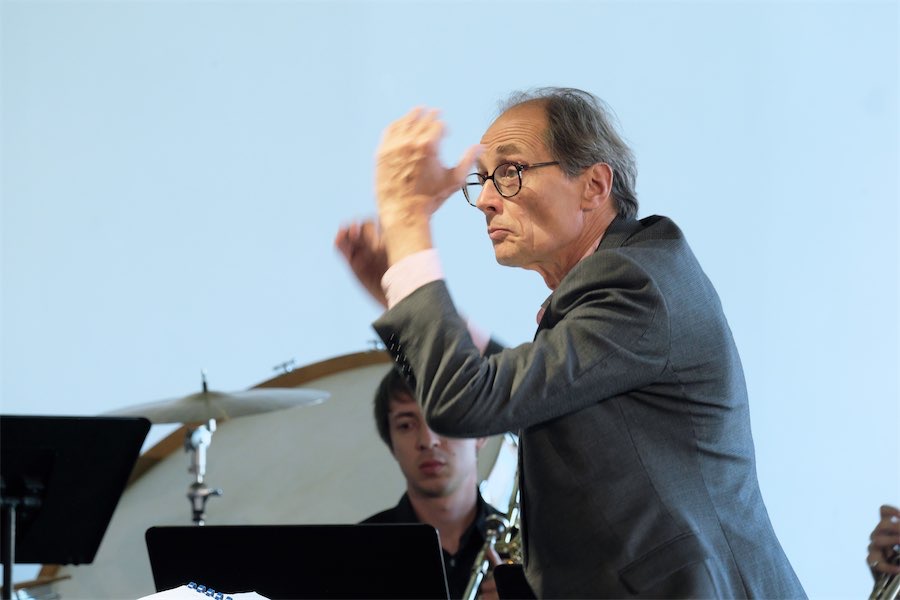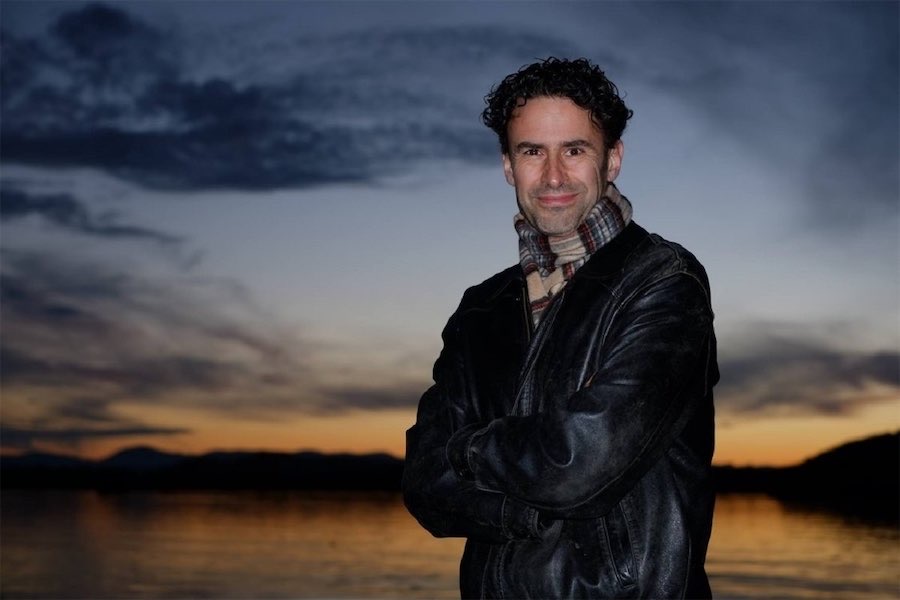
The title is the Filipino version of “Knock Knock, Who’s There?” and it immediately signals the essence of this production – interactivity.
Based on four monologues researched and written by Maynard Manansala, the show has been directed by Ed Lacson Jr. and produced by Patrician Gascon with support from the Philippine Commission on Human Rights.
In a “Rashomon”-style exploration of four aspects of the same story, this performance, reminds me of theatre at its best, involving the passionate engagement between actor and audience.
As with a great deal of Aboriginal theatre that we see in Australia, the burning urgency of the issues explored demands the centre stage, and The Street should be applauded for supporting the organisation, Australian for Philippine Human Rights, which brought this play and a series of theatre workshops to town.
Commanding the stage is the renowned Filipina political satirist, Mae Paner, (stage name “Juana Change”), who enraged the Filipino military last year when she wore a military uniform to a protest held in time for President Rodrigo Duterte’s state of the nation address.
Speaking initially in English and later in Filipino with English surtitles, Paner first appears as a male news photographer giving a lecture to undergraduate students on the subject.
Based on a real life news photographer who was forced to resign from his newspaper when he was sidelined to a non-controversial news beat, he lectures the journalism students on the facts, the way the light falls and the enormous responsibility in a world where a picture tells a thousand horrifying stories. One of his photos makes it to the front page of the New York Times and poignantly it captures what is known by all Filipinos as “EJK” – Extra Additional Killings.
Paner’s method is interactive – close-up to the audience she/he drives the questions backward and forward, sometimes eliciting an audible response but mostly leaving the audience dumbstruck by this close-up and personal relationship to the actor.
The second segment is decidedly eccentric, but makes the point that the poor are hit hardest and that lives do matter. Here she adopt the uniform and persona of tea lady/Zumba instructor, Rosing. Course and loud, like the Zumba music in the background, she interspersed dance moves with a dialogue involving her dead husband and son – a drug dealer and addict respectively, killed by the police. Rosing too was a real person, left with children. She comes to every performance of “Tao Po” in Manila, with the kids, and serves tea.
In the third monologue Paner returns to a masculine portrayal, becoming a killer who carries out extra judicial killings on orders, quite a profitable job, as he explains. Scriptwriter Manansala based this part on an interviewee in a documentary, but Paner invests him with occasional flashes of humanity, just enough to make you feel that he is real.
Finally, Paner adopts an elegiac mood as she becomes a nine-year-old girl, again a real person, whose mother and father have been killed before her eyes. She places candles, each with a name, in niches at the Manila cemetery’s Tokhang Wall. Are all real names. The point she makes, like Rosing, is that most of the dead are just ordinary people making ends meet.
This was a bravura performance that hit home to the small, committed audience – what a shame plays like this are so infrequently seen on the main stage.
In a Q&A that followed, the articulate Paner and her colleagues, joined by guitarist and activist Bong Ramilo from Darwin, spoke of the EJK and their wish to “do honour to people who lost their lives”. Ramilo struck a faintly optimistic note when he commented: “’they’ won’t be there forever.”
As for this writer, it was the most stunning piece of theatre I’ve seen all year.
Who can be trusted?
In a world of spin and confusion, there’s never been a more important time to support independent journalism in Canberra.
If you trust our work online and want to enforce the power of independent voices, I invite you to make a small contribution.
Every dollar of support is invested back into our journalism to help keep citynews.com.au strong and free.
Thank you,
Ian Meikle, editor




Leave a Reply